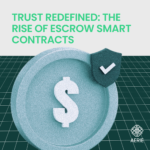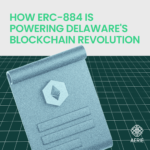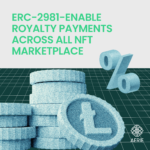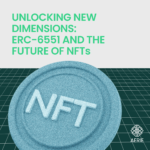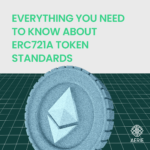What is Decentralized Finance (DeFi)?

Something epic has been going down in the financial world since a few years ago. It’s called decentralized finance, or DeFi for short. And let us tell you, it’s turning the whole game on its head! Forget about those old-school centralized financial systems we’ve been stuck with for ages. DeFi is here to bring us a whole new level of openness, transparency, and inclusivity.
It’s all about empowering folks like you and me. With its promise of financial control and innovative solutions, DeFi has been gaining attention and reshaping the way we think about and interact with money.
So, what exactly is DeFi?
DeFi is this new decentralized financial world built on blockchain technology, teaming up with smart contracts to automate and streamline all sorts of financial transactions. We’re talking about lending, borrowing, trading on decentralized exchanges, stablecoins, yield farming, insurance protocols — you name it. DeFi, at its core, is about transparency, accessibility, and eliminating middlemen. In DeFi, individuals have greater control over their financial activities.
Here’s how it rolls: DeFi operates on public blockchains, like Ethereum, so anyone can jump right in and get involved. No need to rely on those old-school intermediaries anymore. This decentralized architecture removes the need for trust in centralized entities and fosters a more trustless and open ecosystem.
How does DeFi work?
The real magic behind DeFi is these things called smart contracts. They’re self-executing agreements coded on the blockchain and facilitate business all on their own. When certain conditions are met, these contracts kick into gear and make things happen without any intermediaries getting in the way. That means saying goodbye to all the unnecessary costs and inefficiencies.
Let us paint you a picture: imagine you wanna borrow some cash through a lending protocol. You put up some digital assets as collateral, and boom! They get locked up in a smart contract. Then, that contract automatically releases the loan amount in a specific cryptocurrency. You’ve got a timeframe to repay it, with a little extra interest, of course. The entire process is transparent, secure and does not require a traditional financial institution’s involvement.
What are DEXs?
Let’s talk about one of the hottest things in DeFi town: decentralized exchanges, or DEXs for short. See, traditional exchanges act as intermediaries, matching buyers and sellers and holding custody of your cash. But DEXs? They cut out the middleman and let you trade directly with your fellow users, thanks to some nifty smart contracts.
With DEXs, you can wave goodbye to the nightmares of hacks or having your funds seized. DEXs have seen tremendous growth and adoption, giving you greater control over your assets and fostering a more decentralized and resilient financial ecosystem.
People are flocking to them because they’re tired of the limitations of centralized finance. Ridiculous fees, restricted access, lack of transparency, and susceptibility to censorship or control by central authorities? No, thank you!
DeFi presents a compelling solution to these challenges by democratizing financial services, making them accessible to all, reducing costs, increasing transparency, and promoting financial sovereignty. DeFi opens up a whole new world, especially for those in underserved regions without access to traditional banking. Now, they can jump right into the global financial landscape, earning interest, trading assets, and getting access to lending services.
Is it disrupting the traditional banking system?
Let us drop some knowledge bombs about DeFi. It’s got the power to shake up traditional financial institutions and offer us a new level of efficiency and inclusivity. For instance, DeFi lending platforms provide loans without the need for exhaustive credit checks, making borrowing more accessible to the masses.
Let’s not forget about yield farming, where you provide liquidity to DeFi protocols and watch those rewards roll in. It’s a whole new way to invest, with potentially better returns than those snooze-worthy savings accounts. These factors attract not only regular Joes like you and me but also institutional players who see the potential for higher yields and better financial infrastructure.
However, it’s worth noting that DeFi is still a wild and untamed beast. It’s a nascent space that’s growing at warp speed. We gotta keep an eye on a few things. Security vulnerabilities, scalability issues, and all those pesky regulatory uncertainties can throw a wrench in the works. We don’t wanna see anyone losing their hard-earned cash due to some sneaky smart contract bug. As the DeFi world grows up, it’s on all of us to work together. Industry peeps, regulators, and participants gotta collaborate to address these challenges head-on. We need a solid framework that keeps us safe while still letting the innovation flow.
DeFi is a straight-up revolution in the finance landscape. It’s taking us to a decentralized and inclusive future. Thanks to blockchain and those smart contracts, DeFi offers us greater control over our financial activities, eliminates intermediaries, and fosters transparency and accessibility.
The popularity of DEXs and the search for alternatives to old-school finance speak volumes. We’re all hungry for systems that actually work for us. DeFi’s like a breath of fresh air in a stuffy room. Challenges aside, DeFi is reshaping the future of finance. It’s all about empowering individuals and flipping those traditional notions of banking and investment on their heads.

